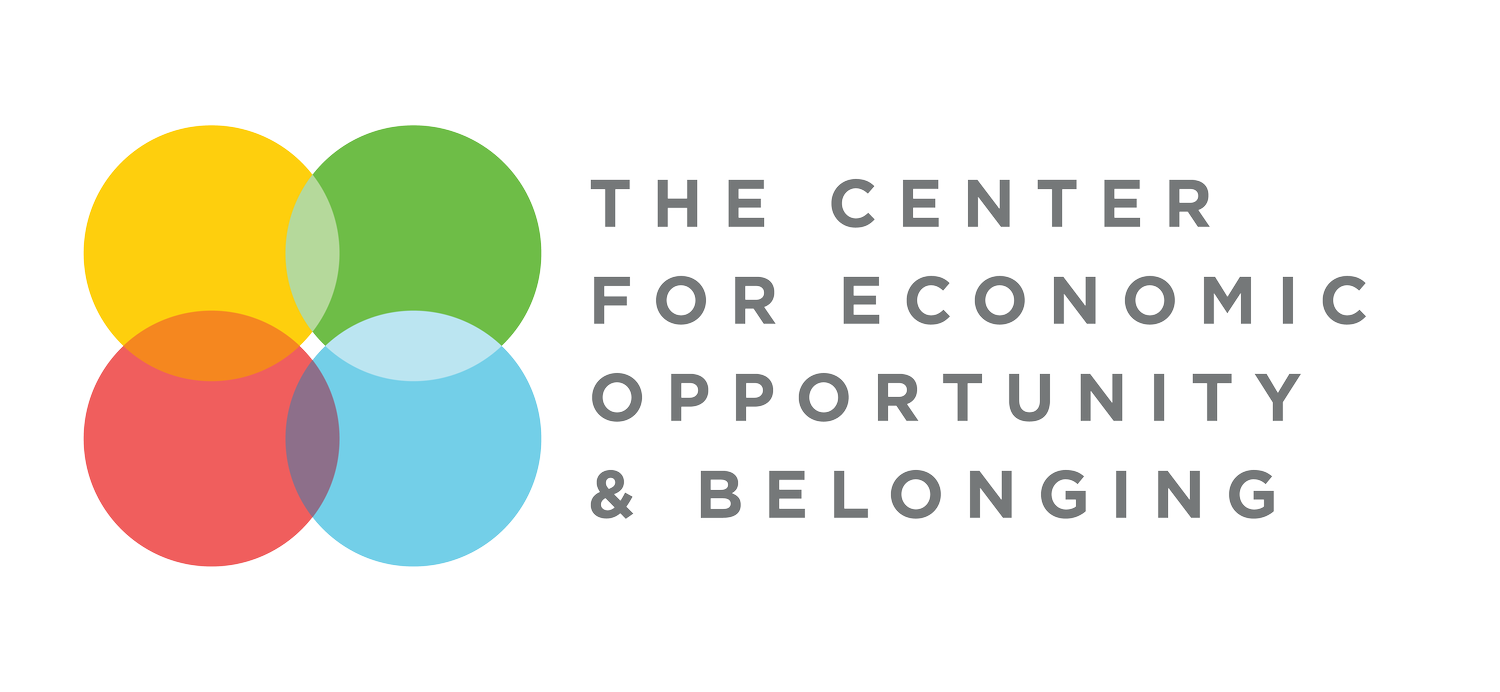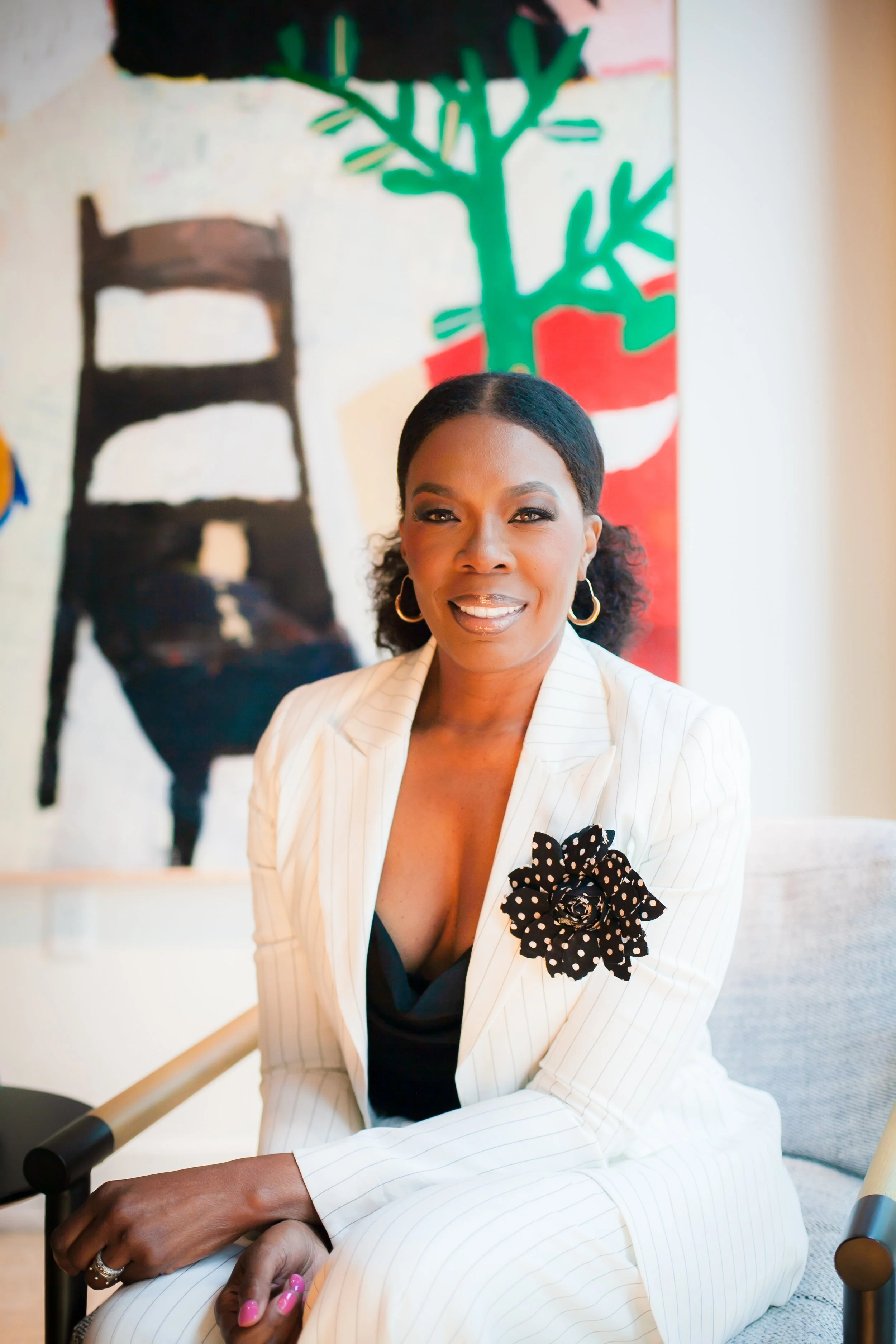Spotlight: Dr. Sidni Shorter, Utah Black Chamber
The Center for Economic Opportunity and Belonging (The Center) is excited to continue this Spotlight series where we sit down with organizations to talk about their work and their belonging journey in Utah.
We recently sat down and spoke with Dr.Sidni Shorter, the President and CEO of the Utah Black Chamber of Commerce, about building belonging in Utah and her work at the Utah Black Chamber.
In two to three sentences can you explain what you do?
My work, my passion, and my focus is around ensuring that all businesses and entrepreneurs have the opportunity to participate as a vital component of the economic ecosystem. This means addressing any issues around access, barriers, and high cost of capital. So ensuring that they are part of the equation where they are contributing to the system and not costing the system something. My approach to that is working to see people first because that's what's behind the business, and often that’s what's driving the business. This approach is a great path to not just learning about the business, but learning who the people are and understanding their vision, goals, and dreams.
What does belonging mean to you?
Belonging, I believe, starts with yourself and being in a space and place with yourself where you can show up authentically. And it does not really weigh heavily on what others think, feel, or accept. I know this is the opposite of how most people define belonging because it's usually defined from the position of being accepted by others, but I believe acceptance has to start with yourself. So in any space you're in, you always feel like you belong. It may be challenging in some cases, but despite this you understand clearly that in any space you show up in, you belong.
Can you share with us a bit of your story of finding belonging/ or your continued journey of finding belonging in Utah?
I think it's continued because I see the progress. I've been traveling to Utah for 40 years. My brother has been here that long. And one of the things I share about my growth even now is that a negative experience I had in Utah years ago could have impacted my decision to come here. Oftentimes we allow singular incidents to define the decisions we make, and it was clear to me that this particular incident could have had a negative impact on my decision to move here. It also could have informed how I engage, move, and build relationships here, but I did not allow that. So belonging for me is absolutely the time and space, the experience, and where I am right now. We only get this a day and I've lived long enough to understand how to allow the past to remain in the rearview mirror and keep my eyes on what's in front of me while understanding that the past has made me who I am. Going back to my first statement of being certain of who I am, that wherever I am I belong, and if within that environment, within that context, there's anyone who feels that I don't belong, I see that as their issue and not mine. I have a saying that I watch my weight so I can’t carry that. I have enough of my things to carry, so I can't carry yours with me. So I'll just, I'll leave that with you.
Going back to what you do, how do you think belonging fits into what you do/ and or your organization does?
Belonging fits into the work because there is no space that I should not be a part of when it comes to our members and who I serve. Sometimes belonging requires work because there are spaces that I enter and it is very clear that the sentiment is that I don't belong there. But as I said, I'm not there just representing me. So there is certainly a purpose for me being there. I have to see beyond myself, because for our members that we serve to be in those spaces, I'm the one who has to go in first, and I have to do that work to ensure that others can come in behind me. We are clearing space or helping others to understand that this is about business. This is truly about business and not biases.
“I have to see beyond myself, because for our members that we serve to be in those spaces, I'm the one who has to go in first, and I have to do that work to ensure that others can come in behind me.”
What are some things you believe we need to do as Utahns to make our state a place where everyone belongs? Or what is something someone did that helped you feel like you belong in Utah?
I just had an experience on Saturday that I would like to share. I went to a local restaurant with my husband and the family sitting next to us started a conversation as we were waiting for a table. My husband and I had our breakfast, and the waitress came over and said there was a gentleman on the other side of the restaurant who paid for our breakfast. And I knew it had to be the gentleman we had been speaking with before. I literally went through the restaurant and found him and thanked him and his family because they certainly didn't have to do that. Those are the little things. Those are the types of things that are really indicative of the culture here in Utah. One of the things that we can do a better job of, as it relates to belonging and the narrative of Utah, is that we have to do a better job of elevating the great work that's happening here. We have to do that. No one's going to help us change that narrative. We know that it's happening, but we just don't promote it. I know there's this feeling that we don't want to brag, but we have to look at how much time, attention, and resources we spend in elevating the negative. We need to share the full story of what is happening here. And the fact that this entity exists in the state of Utah is a testament to the intentionality and the culture that's prevailing, we just don't promote it.
How can people get involved?
I always say just come with us. What I narrow it all down to are the people and the relationships, although it's in the container of business. Those are the ingredients, and I think that is what we should continue to do. As we engage we are looking to make connections. As a President of a Chamber of Commerce, what I would add to that is ensuring that we make opportunities become outcomes. Outcomes may be a relationship, a collaboration, or a partnership. It's imperative to work with the true ingredients that make Utah what it is. And that's the people, the culture, the connectivity.

